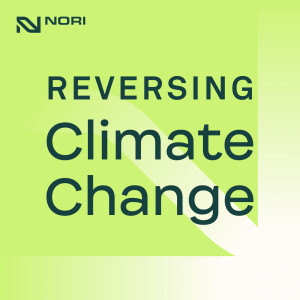
93: Finding Wonder in Waste—with Tony Bova & Jeff Beegle of Mobius
 2019-09-24
2019-09-24
We humans have a waste problem. We design things to do just one job and produce a lot of garbage as a result. Nature, on the other hand, transforms its leftovers into nutrients for the rest of the ecosystem. So, how can we create the same kind of closed-loop system? How can we take organic waste and turn it into a valuable resource?
Tony Bova and Jeff Beegle are the CEO and CSO of Mobius, a mission-driven chemical company focused on eliminating waste by leveraging industrial organic waste streams to create new materials and chemicals. Today, Tony and Jeff join Alexsandra and Christophe to discuss the idea behind Mobius and explain how they are using the lignin stripped from trees by paper companies to make biodegradable plastics for agriculture.
They define the circular carbon economy, sharing their mission to capture lost carbon and facilitate a closed-loop system. Tony and Jeff also describe what differentiates Mobius from the traditional petrochemical industry and address what barriers to adoption they face. Listen in for insight around the technologies Mobius is developing for the horticulture and nursery industry and learn how they are creating a world where there is wonder in waste!
Key Takeaways
[2:18] Tony’s path to Reversing Climate Change
Learned about green chemistry as undergrad (e.g.: ibuprofen) Graduate research on turning waste into valuable materials
[5:35] Jeff’s path to Reversing Climate Change
Undergrad in bioengineering, renewable energy tech project Graduate research on poop as feedstock for energy/chemicals
[8:44] The inspiration behind Mobius
Paper companies strip lignin and burn or landfill Idea to use lignin to make biodegradable plastics for ag
[13:51] Why we have a ‘waste problem’
Produce 400B tons of plastic every year Take-make-waste vs. closed loop system
[15:56] The components of the circular carbon economy
Technical nutrient cycle (i.e.: electronics) Bio-nutrient cycle
[18:38] The concept of ‘lost carbon’
Carbon emitted comes from few sources (e.g.: lignin, food waste) Make into something else rather than burn or landfill
[22:22] The first lignin-based technologies created at Mobius
Containers for horticulture, nursery industry Plant seed tray directly in ground (return carbon to soil)
[26:09] How Mobius differs from the current petrochemical industry
Traditional industry separates components of petroleum or oil Compounders make pelletized plastics for converters Mobius serves as compounder using waste vs. petroleum
[29:57] The chemistry of brewing beer
Leverages concepts science and engineering Set of ingredients, matters how much and when added
[38:54] The barriers to adoption Mobius faces
Cost (petroleum and natural gas cheap) Industry existed for long time Different requirements for every application
[45:02] What it means for something to be biodegradable
Degrades in natural environment (bacteria, fungi eat as food) Ask where, how much and how long
[49:18] What’s next for Mobius
More applications for lignin-based, biodegradable plastics (e.g.: mulch film) Grant from Kroger to turn cooking oil into specific chemicals, plastics
Connect with Alexsandra & Christophe
Nori
Nori on Facebook
Nori on Twitter
Nori on Medium
Nori on YouTube
Nori on GitHub
Nori Newsletter
Email hello@nori.com
Nori White Paper
Subscribe on iTunes
Carbon Removal Newsroom
Resources
Mobius
Techstars
GreenBiz
Circularity 20
Kroger Innovation Fund
More Episodes
Create your
podcast in
minutes
- Full-featured podcast site
- Unlimited storage and bandwidth
- Comprehensive podcast stats
- Distribute to Apple Podcasts, Spotify, and more
- Make money with your podcast
It is Free
- Privacy Policy
- Cookie Policy
- Terms of Use
- Consent Preferences
- Copyright © 2015-2024 Podbean.com






